Ramps are a welcome harbinger of spring in Pennsylvania, sprouting from forest floors with some of the first edible green leaves of the year. These wild onions that grow primarily in eastern North America are fleeting, hotly foraged delicacies, much like morels and fiddlehead ferns. Every April, they start popping up in farmers markets, on restaurant menus and on social media, like clockwork.
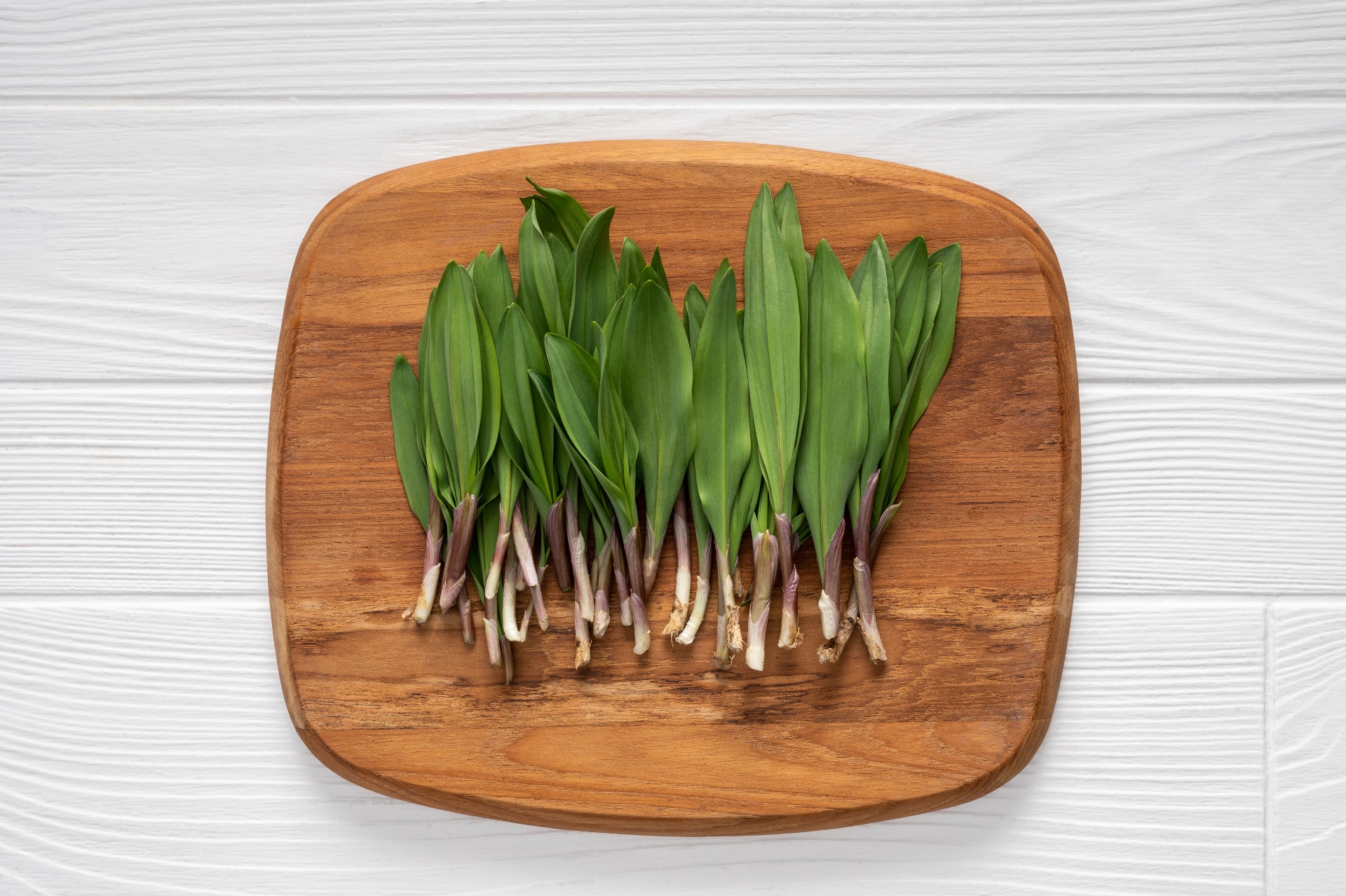
Ramps dwell in woodland understories, often found on hills by streams and creeks where the land is both moist and well-drained. They soak up plenty of sun before the forest canopy fills out and, by June, bloom white snowball-like flowers. Don’t confuse them with poisonous Lily of the Valley, which looks similar! A sniff test will tell which one you’ve found; ramps have a stink on them.
Chefs, foragers and locavore epicures use these tender, fragrant shoots like you would an onion or leek. They have robust aromas and tastes that add a major pop of flavor, especially to rich foods like creamy pasta dishes and pizza. Ramps are also frequently whipped up into a verdant, pungent pesto.

Ramps are also utilized in PA-made artisan products, like Native Foraged Ramp Vinegar by Native Vinegar Co., Bootlegger Gourmet Wild Leek Dip by Ol’ Papa the Bootlegger, Small Batch Ramp Butter by JunXion Farm and Wild Ramp & Goat Cheese Quiche by Nomadic Pies.

CJ Spirits in the Pennsylvania Wilds releases a ramp-infused vodka every year called Wilds, and hosts Leekfest each April, featuring foods made with ramps and a leek dip contest.
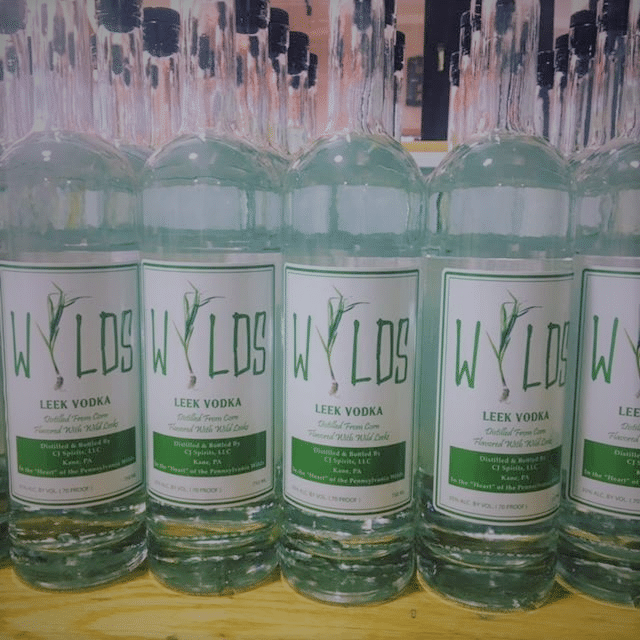
Ramps, or Allium tricoccum if you want to be official about it, are not generally grown through commercial production. They can take up to seven years to reach maturity and do not grow in fields. So, ramps are typically foraged by hand during their brief three-week harvest window, making them a hyper-local and highly coveted treat.
You can sometimes find ramps in local markets from vendors like Wild Purveyors in Pittsburgh and Riverwards Produce in Philadelphia and at seasonally focused restaurants. Ramps can also be purchased from area farms, like Delaware Valley Ramps in Equinunk, PA.
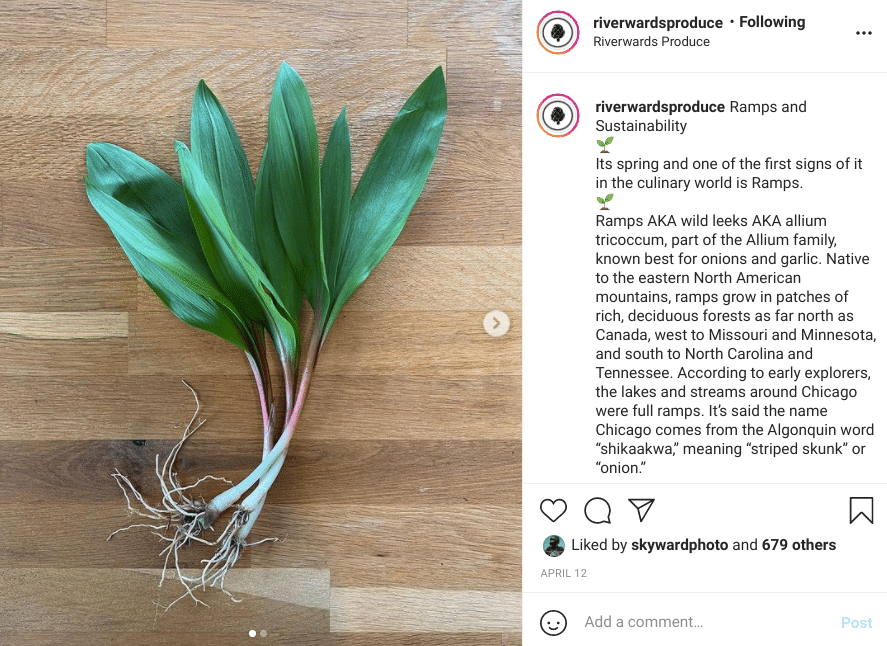
Seasonal demand and over-foraging have contributed to a scarcity of ramps. There has been a lot of attention given in the past few years to the concept of responsible foraging. As we learned from farmer Ian Brendle of Green Meadow Farm in Gap, PA in our feature article about foraging in PA, ramps slow growth cycle means that if a patch is over-harvested, it can take over a decade for those plants to come back to a harvestable size. Brendle planted a patch of ramps on his own property, and manages the area by only harvesting about 10% per year, often taking only the leaves and stems, while leaving the bulbs in the ground so the plant can continue to grow.
“A 100-year-old patch can be undone in the blink of an eye,” Brendle notes. “My big thing is all wild foraging should be done mindfully … I can’t impress enough on people to take it easy on ramps.”
In Green Gold, Foraging for Wild Ramps in Pennsylvania, WHYY highlights how to find ramps but, more importantly, how to forage sustainably and show respect to the plant.
Ramps are particularly special and storied in Appalachian regions, where they’re known as wild leeks. Up until the early 20th century, these areas were isolated from interstate exchange of goods, and green things were hard to come by at winter’s end. People often lived frugally from livestock they’d butchered, root vegetables and preserves made during the last year’s harvest. Ramps were, and still are, the first spring vegetable available, and their arrival was cause for celebration. Many families in Northwestern PA remember, or still have, traditions of trekking out into the forest, hunting for ramps.
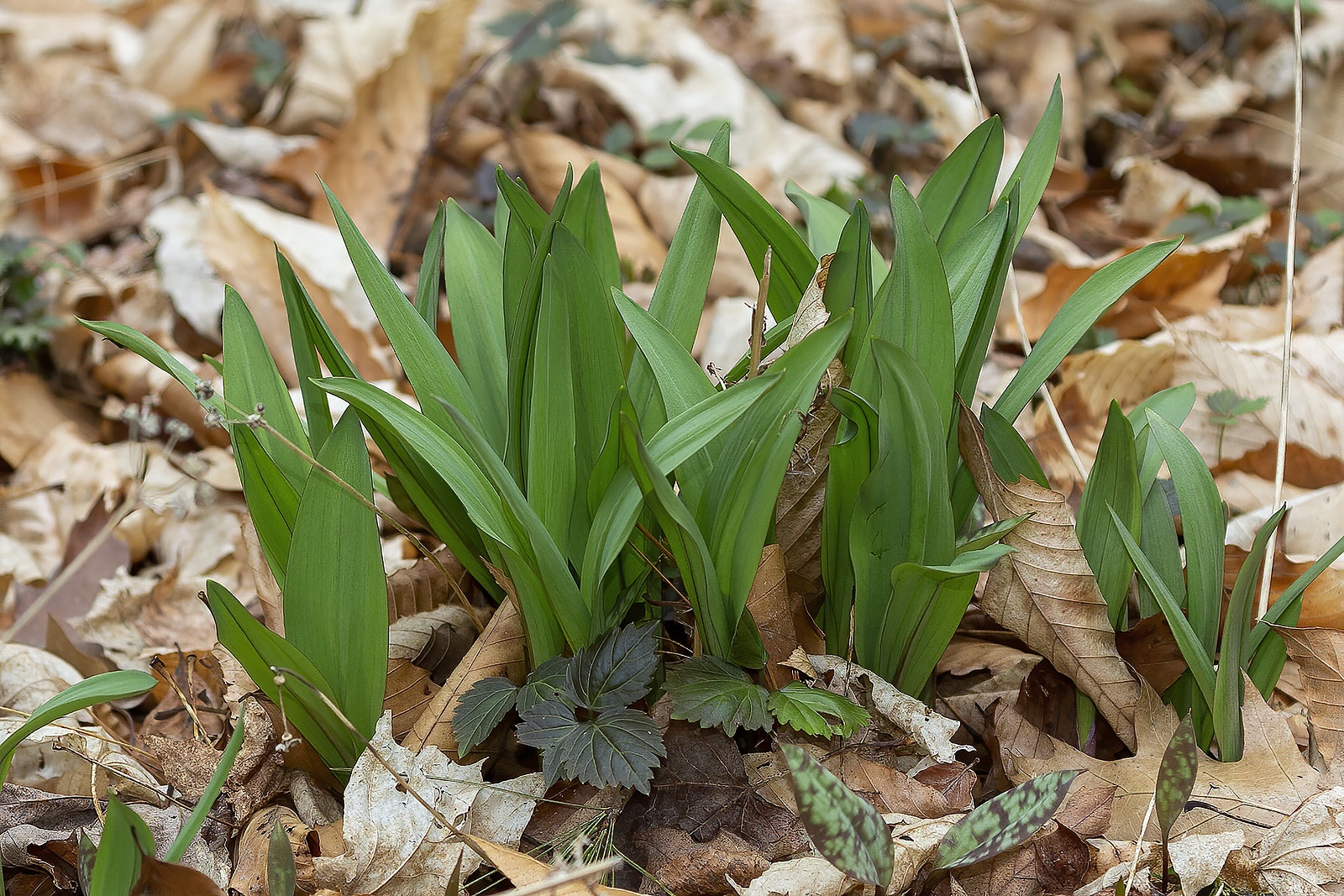
While large-scale Pennsylvania ramp festivals, such the Mason & Dixon Ramp Festival in Mt. Morris (Greene County) and the Bradford Stinkfest, in Bradford, PA (McKean County) have retired, the excitement around ramps persists. Those eager to forage for themselves can link up with local guides for ticketed, small-scale and sustainable ramp-picking opportunities. Delaware Valley Ramps in Equinunk (Wayne County) offers select dates for Ramps U-Pick and you can pay for guided ramp-picking at JunXion Farm in Chadds Ford (Chester County).
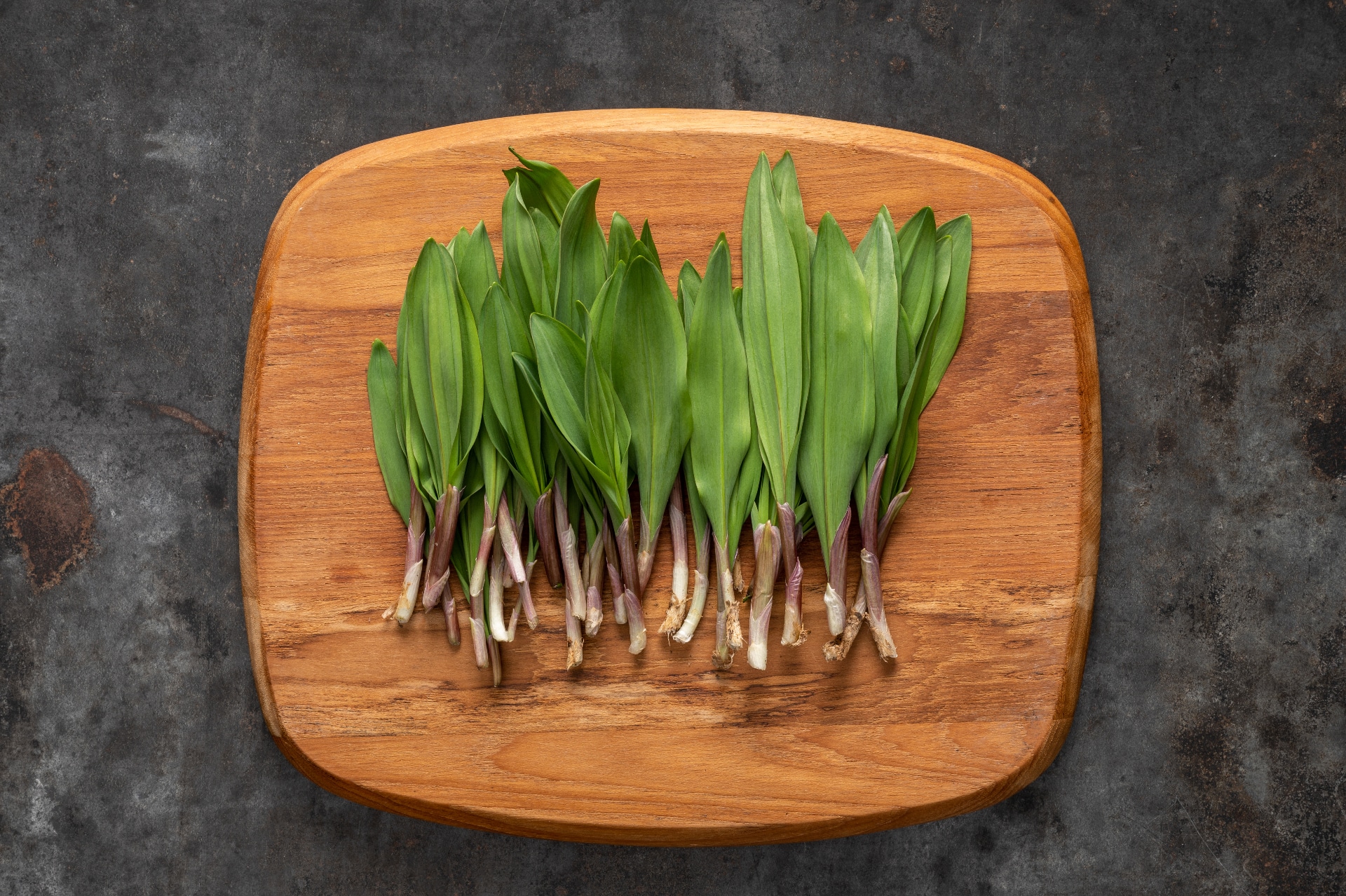
If you want to explore this springtime treasure in your home cooking, don’t miss your window of opportunity! Ramps season only lasts for a few short weeks, and then they’re gone again until next year. We encourage you to check with your local markets or farmers to ensure that the ramps you’re buying were sustainably harvested. In New York, ramps are listed as an endangered species, and are categorized as a species of Special Concern in Maine, Rhode Island and Tennessee. In Quebec, Canada, ramps are considered a threatened species, and commercial sale of them is banned. If we want to ensure that ramps are a seasonal delicacy for many springs to come, we must make sure that they are not over-harvested to the point of extinction! As always, shopping locally from trusted farmers and purveyors is the best way to make sure that the ramps in your fridge aren’t contributing to this issue.
- Leek portraits: Dish Works
- Pizza photo: Anna Miron
- Quiche photo: Nomadic Pies
- Wilds vodka photo: CJ Spirits
- Video: WHYY
- Wild leeks outside photo: Bigstock
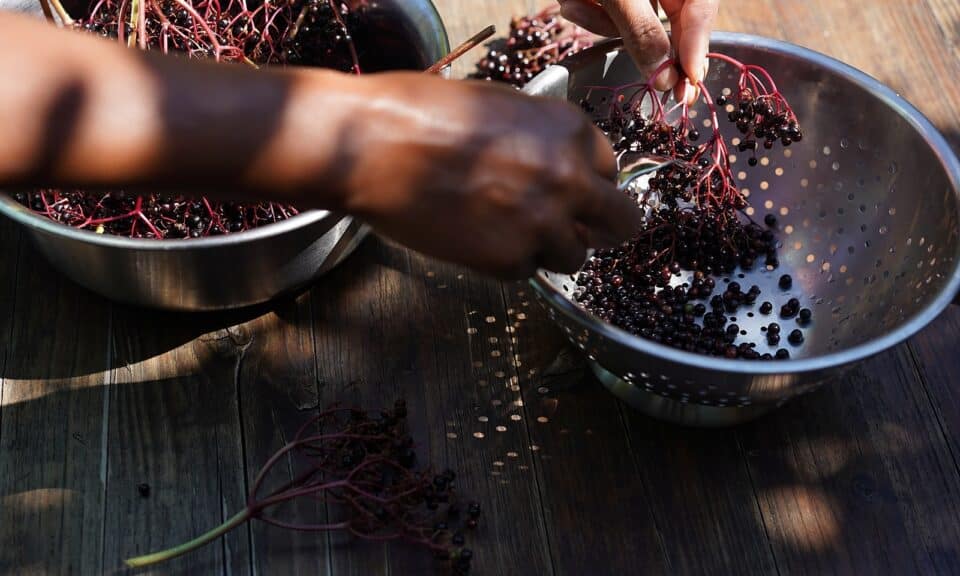
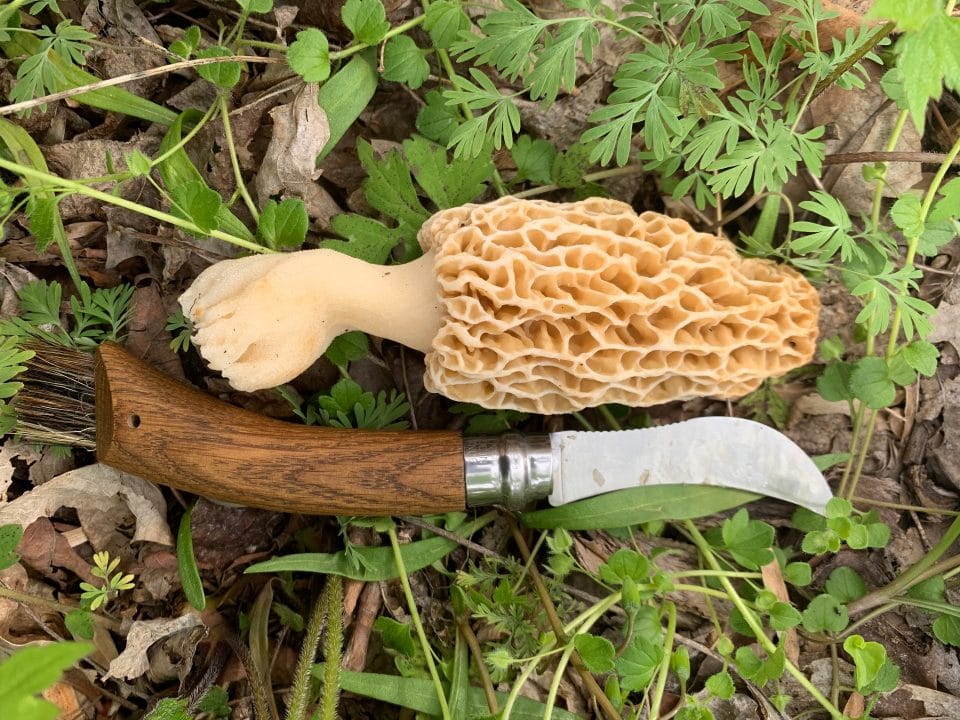
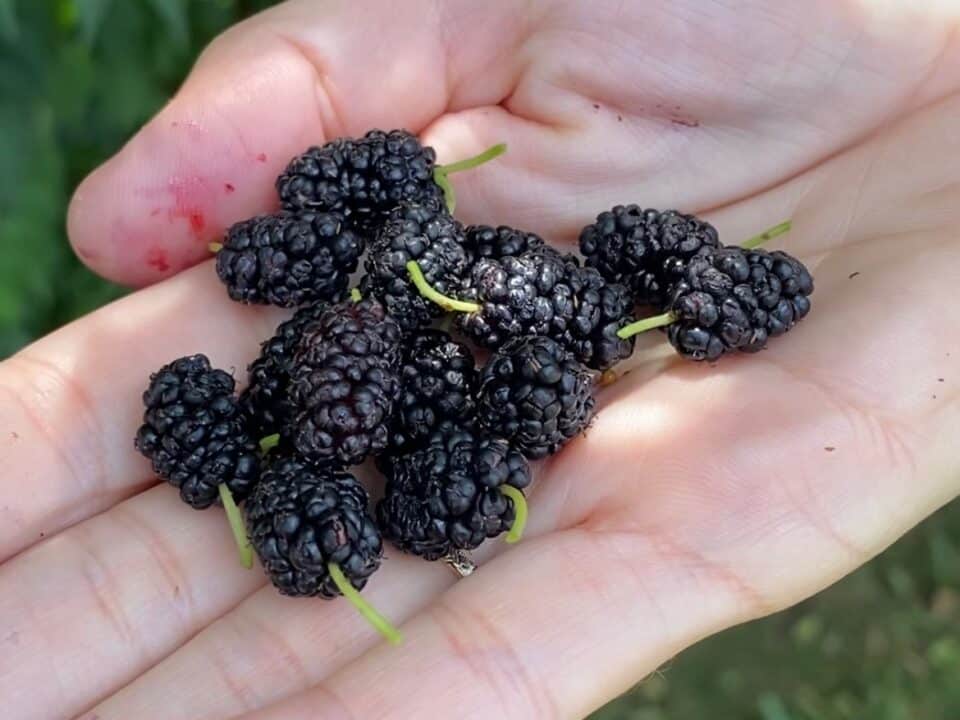
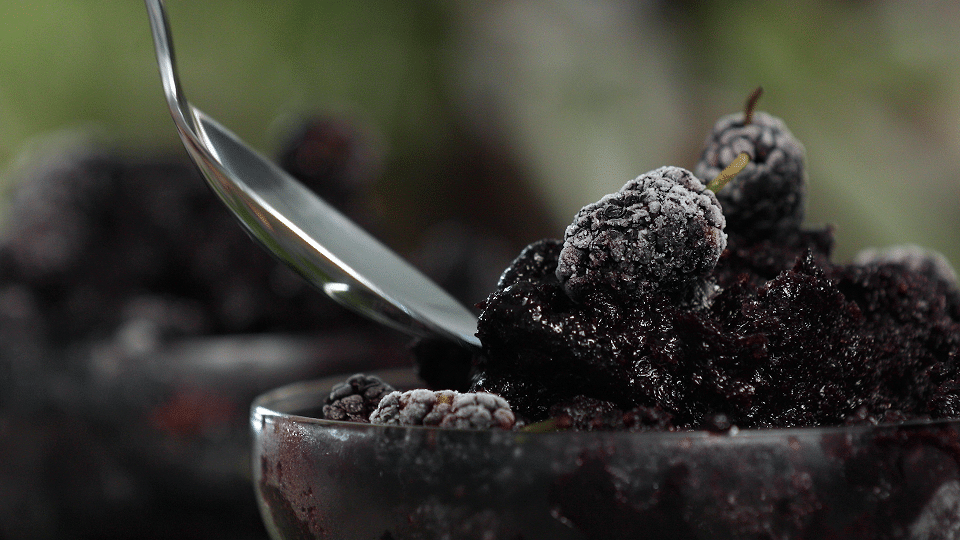

3 Comments